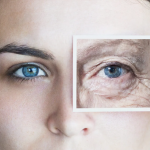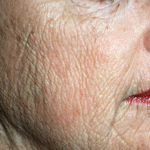I often encounter questions about the relationship between sunscreen use and vitamin D production. There’s a delicate balance between protecting your skin from harmful UV rays and ensuring adequate vitamin D levels, both of which are crucial for overall health. Let’s delve into the why, what, and how of sunscreen and vitamin D, along with the best advice for their optimal use.
Why Sunscreen Matters
Sunscreen is your skin’s best defense against the damaging effects of ultraviolet (UV) radiation from the sun. Prolonged sun exposure without protection can lead to sunburn, premature skin ageing, and an increased risk of skin cancer, including melanoma, the deadliest form of skin cancer.
What is Vitamin D and Why Do We Need It?
Vitamin D is a fat-soluble vitamin that plays a vital role in maintaining bone health, supporting the immune system, and regulating mood. One of the primary sources of vitamin D is sunlight exposure, as UVB rays trigger its synthesis in the skin. However, excessive exposure can also lead to sun damage and increase the risk of skin cancer.
The Balance Between Sunscreen and Vitamin D Production
Using sunscreen effectively reduces UV exposure and protects against skin cancer and premature ageing. However, it can also limit the production of vitamin D in the skin. Finding the right balance between sunscreen use and maintaining adequate vitamin D levels is essential for overall health.
How to Strike the Balance
- Choose the Right Sunscreen: Opt for a broad-spectrum sunscreen with SPF 30 or higher to protect against both UVA and UVB rays. Look for formulations that are water-resistant and suitable for your skin type.
- Apply Sunscreen Generously: Use enough sunscreen to cover all exposed skin, and don’t forget commonly overlooked areas like the ears, neck, and tops of feet. Apply sunscreen 15-30 minutes before going outside and reapply every two hours or immediately after swimming or sweating.
- Seek Shade During Peak Hours: Minimize sun exposure during peak UV hours, typically between 10 a.m. and 4 p.m. If you’re outdoors, seek shade under umbrellas, trees, or awnings.
- Consider Vitamin D Supplementation: If you’re concerned about vitamin D deficiency due to limited sun exposure, consider taking a vitamin D supplement under the guidance of a healthcare professional. This is especially important for individuals with darker skin, those who live in northern latitudes, or those who spend most of their time indoors.
Benefits of Sunscreen
- Prevents Sunburn: Sunscreen protects your skin from the harmful effects of UVB rays, preventing sunburn and reducing the risk of skin cancer.
- Reduces Premature Ageing: Regular use of sunscreen helps prevent photoageing, including wrinkles, fine lines, and dark spots, keeping your skin looking youthful.
- Lowers Skin Cancer Risk: Sunscreen protects against both melanoma and non-melanoma skin cancers by blocking UV radiation from damaging the DNA in your skin cells.
Dos and Don’ts of Sunscreen and Vitamin D
Dos:
- Do wear sunscreen every day: Regardless of the weather, UV rays can still reach your skin, so make sunscreen a daily habit.
- Do reapply sunscreen often: Especially after swimming, sweating, or spending extended periods outdoors.
- Do check your vitamin D levels regularly: If you’re concerned about deficiency, consult your healthcare provider for testing and guidance on supplementation.
Don’ts:
- Don’t rely solely on sunscreen for vitamin D: While sunscreen is essential for protecting your skin, it can limit vitamin D production. Consider other sources such as diet and supplements.
- Don’t use expired sunscreen: Check the expiration date on your sunscreen and replace it if it’s expired to ensure efficacy.
- Don’t skimp on sunscreen: Apply sunscreen generously to ensure adequate coverage and protection.
In conclusion, sunscreen is essential for protecting your skin from the harmful effects of UV radiation, but it’s also important to maintain optimal vitamin D levels for overall health. By striking the right balance between sunscreen use and sun exposure, you can enjoy the benefits of both without compromising your skin or your vitamin D status.










